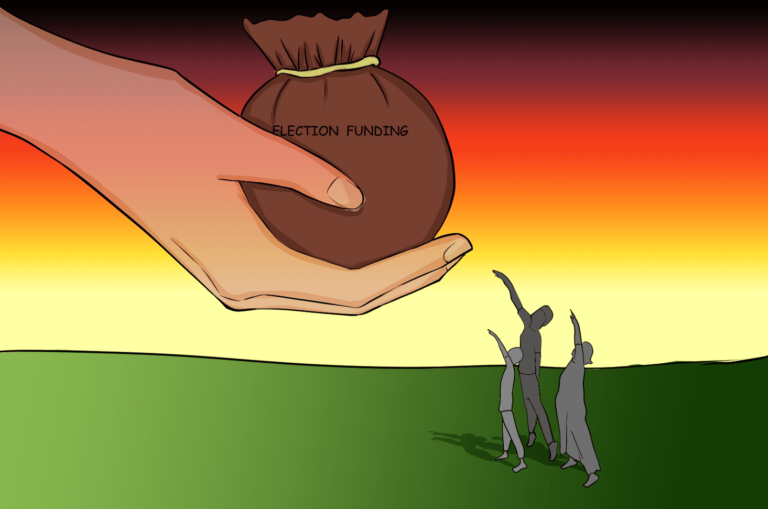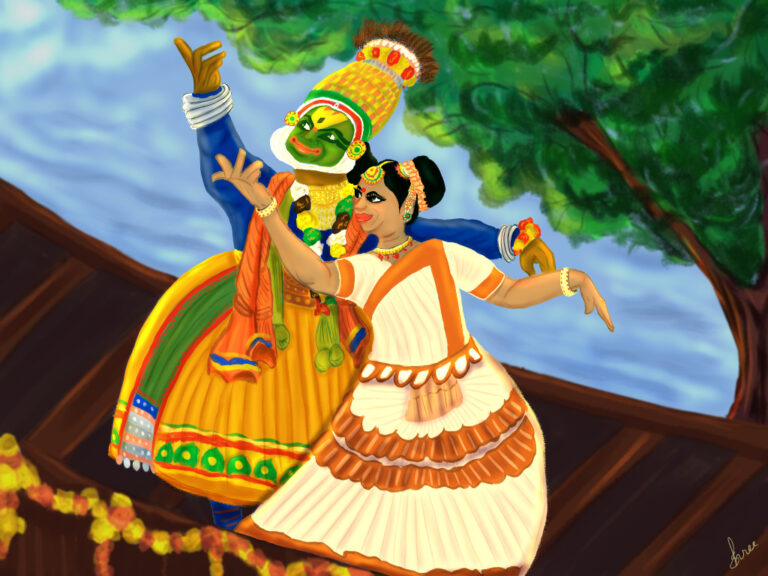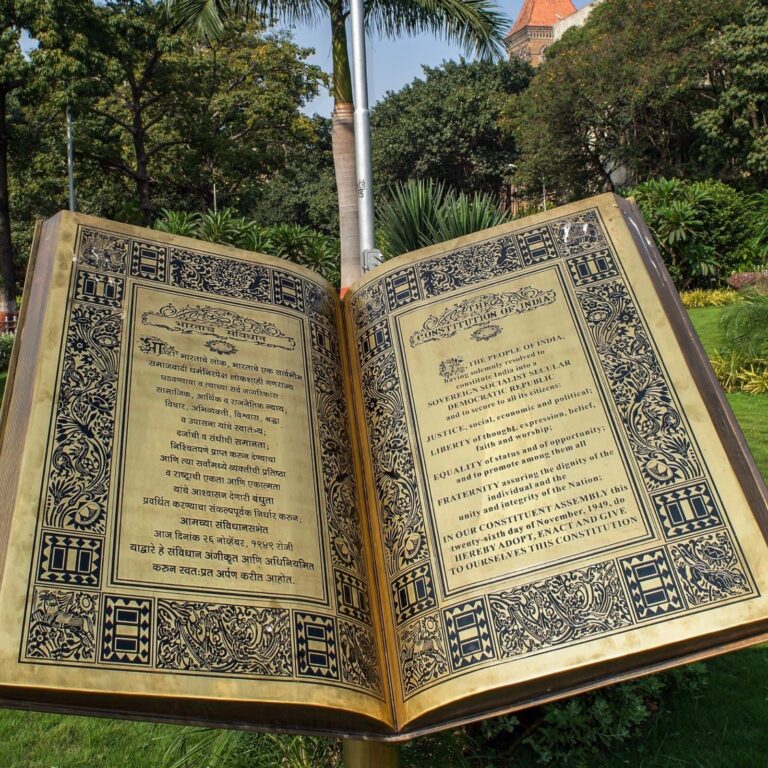From Pre-Colonial to Colony: Traversing through a world of variable sovereignties

The nature of Indian state has witnessed a sea change starting with a relation of subsidiarity or subsumption dating back to the pre-colonial period till achieving an ironical or apologetic position in the heyday of the colonial state. Paradoxes have also accompanied such a change beginning with the state-society interregnum running across the bounds of a traditional versus modern problematic. It is in the light of this transitionary continuum that such a moment of flux can best be appreciated.
The pre-colonial state of subsidiarity or subsumption
The state in the pre-colonial times had essentially a monarchical base and was basically nonsovereign by nature. This portrayal of the state has a clear parallel in the liberal theory of minimal state. The societal norms were derived from the vast cannons of Hindu sacred texts which consisted of essential philosophical doctrines of Danda, Dharma and Artha as observed in the books concerning statecraft, epics and much more including Manusmriti, Arthashastra, Ramayana and the Mahabharata.
In the pre-modern polity the laws which accrued from the Code of Manu were both natural and divine which essentially implies that the king was only deputed with a meagre task of running day to day administrative affairs in the material world below with god having bestowed with the ultimate authority of setting the course of statist and societal developments.
A question which naturally arises is what were the emperors essentially doing in such a preordained politico-social matrix?
According to Sudipta Kaviraj, there was no direct relation between the state and society as such with local notables like zamindars and sarpanchs playing out the role of intermediaries in this erstwhile economic management. But the most crucial thing which embodied the state’s presence in such a state of affair was the role assigned to it regarding the protection of territorial boundaries invoking a keen sense of security among its subjects.
Society was continually and perpetually being governed through that unquestioning way of life that Hinduism entails. Hinduism’s societal norms in course of time became overarching over the lives of the state’s subjects. In the West, from time immemorial, there was a clear cut binary between the so-called haves and have-nots. But in India there was no such essential divide but only gradations within which it was expected of people to find out their relative position of power obtaining from the peculiar yet unique caste hierarchy of Indian society.
In this sense, India was perpetually different from the Greek world with its constituents devoid of an essential Tabula Rasa replaced with a keen sense of belonging in the existent society having a divisive unity of hatred towards other caste groups. Even the body of god itself was divided along caste lines with no king or theological body making the claim to act as effective mediators between the common folk and the divine order.
Here an important aspect has been pointed out by Sudipta Kaviraj which says that as the political authority was minimal there was no revolutionary urge on the part of the people to confront this subsidiary monarchical state. It has been aptly projected by him that as the Indians were so much bothered about the nitty-gritty of their socio-religious life compounded with an essentially introvert Hindu antiquity, they have allowed people of diverse origins like the Mughals and the British to rule over them.
But while there were no instances of political revolution, those were supplemented by their societal counterpart as manifested in the plethora of gender, caste, Bhakti and Sufi movements directed against this divine order.
The two most quintessential features of this erstwhile Hindu society were- Firstly, the state subverting itself continually into perpetual subjugation by a supernatural heavenly will. Secondly, the state only acting out the marginal role of an economic apparatus devoid of the power of legislation which was rigidly segmented into the informal nexus of societal control.
In this connection it may be pointed out that scholars generally suggest that the reason accruing for the long term success of the Islamic rule over India was the latter’s intentional ineptness to change this morbid state of affairs. Though Akbar tried to bring about such a sea change through his famous doctrine of Din-i-Illahi, it failed to permeate through the overtly rigid yet covertly fragmented organization of Indian society.
The colonial state of sovereignty
An essential characteristic of the erstwhile colonial state was that unlike the Islamic conquest of India, it resembled a gradual process starting in the 17th -18th centuries with the demise of the Mughal Empire with several colonial powers competing to obtain capitalistic control over the riches of India. This gradual conquest was accompanied by the desire to visit new places to obtain a holistic form of knowledge about the local constituents employing mapping and surveying techniques.
But how is this state in its essence different from its pre-colonial counterpart?
The colonial powers did not indulge themselves in an all-round conquest of the Indian subcontinent. Moreover, there was a peculiar position produced by the Indian heritage of thinking essentially lacking an all-encompassing concept of politics and critique. An attribute which was gifted to its Western counterpart by the multifaceted intellectual awakening accompanying the Renaissance.
The Western episteme of politics was an episteme of critique. Did the pre-modern Indian state warrant for such a development?
The answer is in the negative owing to the eclectic capacity of Hinduism to absorb the various heterodox religious traditions that arose as a form of a protest movement against its own inadequacies including Buddhism and Vaishnavism with the former’s inherent appropriation of assimilation without undergoing a thorough critic of its own malpractices.
Within this emergent paradigm the question that was posed by Conservatives like Edmund Burke was that if the Indians are devoid of any prior political culture how can the Britishers offer them independence?
Taking cue from this political delinquency characteristic of the Indians, the British East India Company embarked upon diverse policies. They dealt with the various Indian princes taking into account regional specificities without touching upon the fragmentary zone characteristic of Indian society thus retaining a certain autonomous space for itself. The Britishers whose sole motive was surplus economic appropriation did not fret to take cue from the Mughal administrative practices emulating their existent language of control as manifested in the Durbar and many others to handle such a docile citizenry.
All this changed with the Sepoy Mutiny of 1857 through which this prevalent colonial economic organization was essentially replaced by the British monarchical establishment finally bringing politics onto the picture. Some of the important changes that were affected included- Firstly, creation of a fixed territory with a unified command structure to handle the diverse sets of people. Secondly, a need was felt to bring in an expert body of bureaucrats to properly govern the country. Thirdly, the British provided India with her own system of critique and Fourthly, the colonizers tried to effectively thematize, systematize and categorise people bringing in enumerative knowledge while breaking apart the previously held Fazi knowledge in the words of Sudipta Kaviraj.
Still the British administrators themselves faced problems trying to segregate people relying on the operability of the Census data and started drifting towards the Shastric body of knowledge to make sense of the compartmentalized caste structure situated around them. Conversely, this new enumerative apparatus in turn created binaries within the Indian society for instance pitting Brahmins against Dalits and broke the systemic manner of societal oppression in the process empowering hitherto marginalized communities in the 19th century. Thus politics became more emancipatory for these disprivileged people than social revolution or to put it in the words of Atul Kohli a culture of political openness hereby emerged.
What was the impact of this new system of knowledge on the erstwhile nationalist movement?
Apart from bringing forth the political mobilization of previously discontented people, it created a new section of society signifying the emergence of middle class elites.They were tasked with administration not revolution operating within the matrix which resembled a knowledge of subservience. While they could conceptually take part in the Western model of emulation it had no practical basis whatsoever. These erstwhile praxis of colonial rule were thus enmeshed onto a process of ironical freedom or unhappy consciousness devoid of an essential ontological sense of belonging.
Thus, a uniform system of politico-intellectual domination can be witnessed in India for the first time breaking the prevalent parallel existence of state and society. In the process, it created a cultural, historical and geographical representation of the incipient Indian polity which was appropriated by the nationalists to quench any future insurrection of the masses.
It is curious thereby to note as to what was the response of the aforementioned elite Babus towards this unhappy state of consciousness?
The first response could be witnessed in the promulgation of an array of social reform laws like the abolition of Sati which witnessed the direct intervention of the colonial state setting aside its subsidiary role assuming one of supremacy. This incident was also the resultant of a lack of internal critique within Indian society which was forced to look towards the state, an external entity, to solve its communitarian maladies.
The second response came around the mid-19th century in the writings of a prolific Bengali litterateur Bankim Chandra Chattopadhyay on- How to exit this perpetual, unhappy and emulatory state of consciousness and indulge in the practical application of enjoining such an enlightened consciousness of critique?
The way J.S. Mill stated that Indians were in the waiting room of history trying to emulate their colonizers giving birth to the twin concepts of Orientalism and historical linearity also helped fuel such an intellectual approach.
Bankim’s answer consisted of creating a parallel theory of liberty taking cue from the indigenous Indian tradition. An emergent need was felt to create an effective binary within life itself to work with the Britishers in the public domain while treating the private domain as an effective source of autonomy. This thought process ultimately called for bringing about a mechanism whereby Hinduism could be treated as a genuine way of life to create an uncritical source of thinking accompanied by the desire to bring back ancient texts for sustaining long lost mutual connections.
In conclusion, it may be said in the formulation of Partha Chatterjee that this quintessential framework of early nationalist thought signified the moment of departure or a break for Bankim. He was operating in the nexus of culture and power gradually moving amidst the enchanted evocation of the Indian state accompanied by a paradoxical language of politics. It is in this way that the post-colonial Indian polity was being constituted through interpolations, substitutions and diversifications emanating in diverse streams of the nationalist problematic signified by the Deshi, Derivative and the Beyond.
The term ‘Deshi’ denotes the world of sovereignty which marked the state of subsumption, harping upon the pre-colonial state which had a minimalist interference on the private morality of the citizens. The term ‘Derivative’ denotes the state of sovereignty which was visible during the colonial period marked by a tendency on the part of the indigenous intelligentia to break out of the asundage of colonial subordination by taking help from the same knowledge apparatus which the colonialists brought with them marked by an overt emphasis on the principles of liberty, equality, justice, freedom etc. The term ‘Beyond’ signifies the attempt on the part of the sovereign psyche to retain the elements of cultural diversity within one’s sphere of private morality with an outward emphasis on public morality marked by enlightenment underpinnings to resist the colonial state. This line of thought which was first propounded by Bankim Chandra Chatterjee was later on developed by Gandhi and Nehru which was visible in their respective socio-political perspectives accompanying the nationalist ethos in which they tried to overlook the malpractices prevalent within the various religious dispensations of India hoping that in the long run these trivialities would become matters of little significance beside the nation’s onward march towards a developmental orientation marked by the flowering of a rational scientific outlook which was especially true of Nehru.
Gandhi on the other hand refused to accept the caste realities present in the Indian society by addressing the Dalits as ‘Harijans’ and vehemently opposing the division of the Hindu electorate as manifested in the negotiations that culminated in the formulation of the Poona Pact (1932) as he dearly believed that such a division would be a jolting blow to the combined nationalist ethos.
Bibliography
1. Kaviraj, Sudipta. (2005). On the enchantment of the state: Indian thought on the role of the state in the narrative of modernity. European Journal of Sociology, 46(2), pp. 263-296.
2. Chatterjee, Partha. (1986). Nationalist Thought and the Colonial World: A Derivative Discourse. London: Zed Books.
Featured image Credits: Wikimedia Commons







